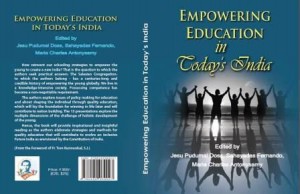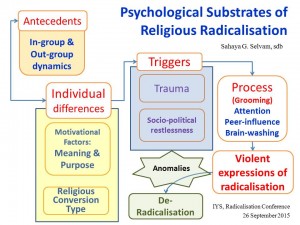Salesian Mission and the HIV prevention programme in South & East Africa:
The Background: It is true that there was an “Life Choices: Abstinence and Being Faithful Programme” run by the Salesians in South Africa, Kenya and Tanzania. It is important to note that while in South Africa it was run only in Cape Town – in one community, in Kenya and Tanzania, it was run in all the institutions of Salesians of Don Bosco and some of the institutions of the Salesian Sisters. It is also true that the five year project (2005 to 2010) was funded by USAID and PEPFAR. The Salesian Mission at Washington had applied for the funding on behalf of the Salesians in the three countries and had acted as the office for monitoring and evaluation of the project.
The current web-news concerns the allegations by means of a journalistic report made by Lepanto Institute and re-reported by […]
Author: selvam
The methodology of Indian education: An autoethnographic assessment
 How to cite this work:
How to cite this work:
Selvam, S.G. (2015). The methodology of Indian education: An autoethnographic assessment. In J. P. Doss, S. Fernando, & M. C. Antonysamy (eds.), Empowering education in today’s India (pp. 203-222). New Delhi: Don Bosco Youth Animation – South Asia.
Abstract
There are basically three possible approaches in scientific enquiry.[1] The third-person approach in science is informed by a positivist epistemology where truth is said to be what can be objectively observed. Physical sciences and life sciences adopt this methodology and derive their conclusions by means of measurements and statistics. Numbers offer an advantage of objectivity. The second-person approach believes that objective observation is not really possible, since the observer always causes their shadow on the observed. Hence truth is actually a construction of the interaction between the observer and […]
Sermon for the Feast of All Saints
 The Saints Inspire, and we can Imitate them
The Saints Inspire, and we can Imitate them
All Saints Day (Nov 1, 2015)
Why Saints? Because they inspire us
In 2009, when the relics of St Thérèse of Lisieux were being taken around the UK, the euphoria of the people who went to pay homage took the sceptics by surprise. In the secular Britain, an estimated 290,000 people paid their respects to St Thérèse, in 20 churches. However, I must say, I heard the most cynical remarks about the relics only from my fellow priests. In any case, one of those nights I was called to help out with confessions at the Westminster Cathedral. As I sat at St George’s chapel, hearing the sincere confessions of some pilgrims, I watched the others file by the relics. But what touched me most was the crowds of people who sat at various positions in the […]
Psychological Substrates of Religious Radicalisation
 On 26th September, the Institute of Youth Studies at Tangaza University College organised a conference on the theme of radicalisation. The conference was well attended – there were over 300 participants. The speakers included representatives from the Ministry of Education, Kenya, and Department of Security.
On 26th September, the Institute of Youth Studies at Tangaza University College organised a conference on the theme of radicalisation. The conference was well attended – there were over 300 participants. The speakers included representatives from the Ministry of Education, Kenya, and Department of Security.
I presented a paper too on the above topic. The scope of the paper was to discuss the psychological substrates of religious radicalisation. ‘Substrates’ refer to a substance or layer that underlies something, or on which some process occurs, in particular. We focus on psychological substrates: what are the psychological factors that underpin the process of radicalisation? Radicalisation: is a process by which an individual or group comes to adopt increasingly extreme political, social, or religious ideals and aspirations that reject or undermine the existing order, […]
Pastoral care of the family in the light of sound psychology
 Abstract
Abstract
Moral philosophers and theologians argue that the human family is governed by natural law. While philosophers might rationally argue for this, theologians resort to revelation. In theologians’ understanding human family is part of the plan of God. Can scientific psychology provide some empirical evidence for “the natural law” argument? If yes, how could psychology enhance the pastoral care of families today? The aim of the present conceptual paper is to offer some contemporary evidence from evolutionary psychology and neurobiology to suggest that, after all, the human brain may be hire-wired for the family. It will go on to reflect on the role of the family in the growth of a Christian in the light some emerging insights from psychology. The later part of the paper will focus on the association between […]